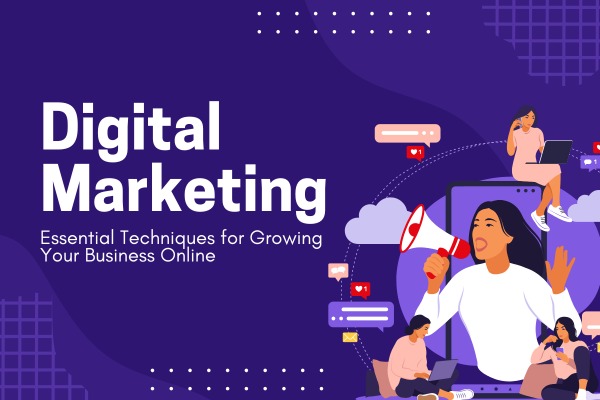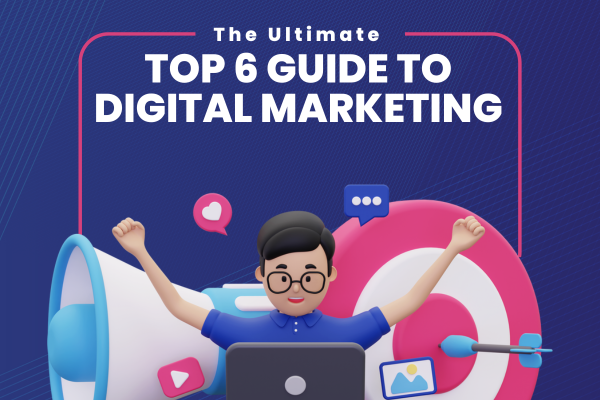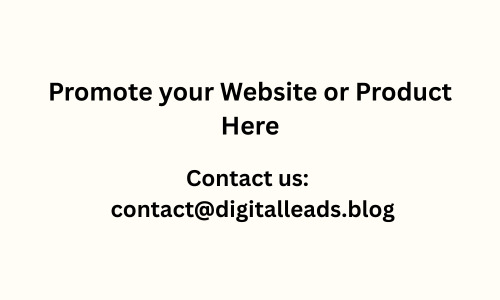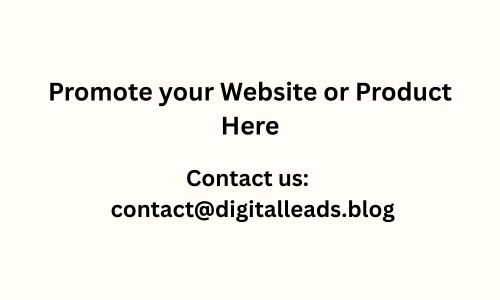Table of Contents
Introduction
Digital marketing has transformed the way businesses interact with their audiences. With quick changes in technology, online marketing strategies have evolved, allowing brands to connect with more consumers, increase interactions, and achieve more sales. Whether you have a start-up, a small business, or a large company, digital marketing is important for long-term success. In this comprehensive guide, we will take into account the key elements of digital marketing, upcoming trends, and best practices to keep pace with the competitive market.
What is Digital Marketing?
Digital marketing encompasses all the online efforts to promote and develop a business through online channels such as search engines, social media, email, and websites. Digital marketing is distinct from offline marketing since it provides precise results and enables precise targeting.

Key Components
- Search Engine Optimization (SEO) – Making a site appear higher on search engine pages.
- Content Marketing –Creating informative content to reach and engage a public.
- Social Media Marketing (SMM) – Utilizing platforms and applications such as Facebook, Instagram, LinkedIn, and Twitter to create brand recognition.
- Pay-Per-Click Advertising (PPC) – refers to paying for online advertisements such as Google Ads and Facebook Ads.
- Email Marketing – Sending targeted emails to build relationships with leads and retain customers.
- Affiliate Marketing – Recruit affiliates or influencers to promote products or services.
- Conversion Rate Optimization (CRO) – Optimization of website and landing pages to attain increased conversions.
- Marketing Automation – Leveraging AI-based solutions to automate marketing campaigns and processes
- Analytics & Data Science – Using data to drive better decisions and maximize marketing efforts.
The Importance of Digital Marketing
1. Cost-Effectiveness
Compared to traditional marketing, digital marketing is more affordable and offers better ROI.
2. Wider Reach
With billions of people online, businesses can reach global audiences without geographical constraints.
3. Data-Driven Decision Making
Digital marketing allows businesses to analyse real-time data and make informed decisions.
4. Personalization
With advanced targeting, brands can create personalized experiences based on user behaviour and preferences.
5. Improved Engagement
Interactive content and social media enable businesses to engage with their audiences effectively.
6. Increased Sales and Revenue
With the right strategies, digital marketing can significantly improve conversion rates and generate more revenue.
7. Competitive Advantage
Businesses that leverage a competitive edge by staying ahead of industry trends.
Top Digital Marketing Strategies for Success
1. Search Engine Optimization (SEO)
SEO is the backbone of digital marketing. By optimizing content, keywords, and backlinks, businesses can improve their visibility on search engines like Google.
- On-Page SEO: Optimizing website content, title tags, meta descriptions, and internal linking.
- Off-Page SEO: Building backlinks, social signals, and guest blogging.
- Technical SEO: Improving site speed, mobile-friendliness, and structured data.
- Local SEO: Optimizing for local searches and Google My Business listings.
2. Content Marketing
Content is king in digital marketing. High-quality, informative, and engaging content can attract and retain customers.
- Blog Posts: Regularly updated blogs drive organic traffic.
- Videos: Video marketing on platforms like YouTube and TikTok increases engagement.
- Infographics: Visually appealing content simplifies complex information.
- E-books & Whitepapers: In-depth resources help establish authority in the industry.
- Podcasts: Growing trend in audio content marketing.
3. Social Media Marketing (SMM)
Social media platforms offer excellent opportunities for brand building, customer engagement, and lead generation.
- Facebook & Instagram: Best for B2C marketing, product promotions, and community building.
- LinkedIn: Ideal for B2B marketing and professional networking.
- Twitter: Great for real-time updates and industry news.
- TikTok & YouTube: Best for video marketing and viral content.
- Pinterest: Great for visual content and eCommerce marketing.
4. Pay-Per-Click (PPC) Advertising
PPC campaigns can drive targeted traffic quickly and effectively.
- Google Ads: Search ads, display ads, and remarketing.
- Social Media Ads: Facebook, Instagram, LinkedIn, and YouTube ads.
- Retargeting: Engaging users who have previously interacted with your brand.
- Programmatic Advertising: AI-driven automated ad buying.
5. Email Marketing
Email remains a powerful digital marketing tool to nurture leads and improve customer retention.
- Personalized Campaigns: Segment audiences for better engagement.
- Automation: Drip campaigns, abandoned cart emails, and follow-ups.
- A/B Testing: Optimize email subject lines, CTAs, and content.
- Interactive Emails: Adding gamification, quizzes, or personalized offers.
6. Influencer and Affiliate Marketing
Collaborating with influencers and affiliates can boost brand credibility and reach.
- Micro-Influencers: Small but highly engaged audiences.
- Affiliate Programs: Commission-based partnerships.
- Brand Collaborations: Joint marketing efforts with complementary brands.
Latest Digital Marketing Trends in 2025
- AI and Automation: Chatbots, predictive analytics, and AI-driven campaigns.
- Voice Search Optimization: Growing usage of voice assistants like Alexa and Google Assistant.
- Video Marketing Dominance: Short-form videos on TikTok, Instagram Reels, and YouTube Shorts.
- Interactive Content: Polls, quizzes, AR filters, and shoppable posts.
- Personalized Marketing: Hyper-targeted ads and recommendations.
- Augmented Reality (AR) Marketing: Enhanced shopping experiences with AR features.
- Sustainable & Ethical Marketing: Eco-friendly and socially responsible brand messaging.
Best Practices for Effective Digital Marketing
- Understand Your Target Audience: Use data analytics to identify customer preferences.
- Consistency is Key: Regularly update your website, blog, and social media.
- Leverage Data and Analytics: Use tools like Google Analytics, SEMrush, and Ahrefs.
- Optimize for Mobile: Ensure your website is mobile-friendly and fast.
- Engage with Your Audience: Respond to comments, reviews, and messages promptly.
- Experiment and Adapt: Test different strategies and refine based on performance.
- Stay Updated with Industry Trends: Digital marketing evolves rapidly, so continuous learning is essential.
Conclusion
Digital marketing is an ever-evolving field that requires continuous learning and adaptation. By leveraging SEO, content marketing, social media, PPC, and emerging trends, businesses can build a strong online presence and achieve sustainable growth. Implement these strategies to stay ahead of the competition and drive measurable results.













2 thoughts on “The Ultimate Top 6 Guide to Digital Marketing”